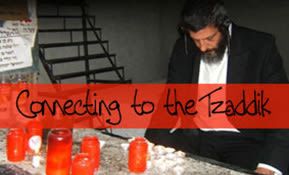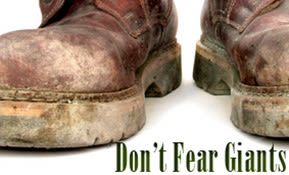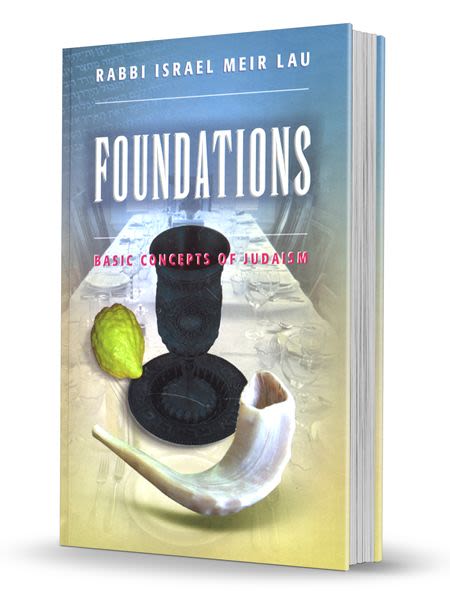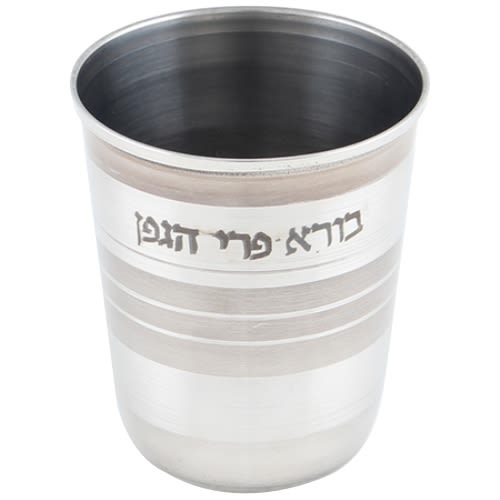
Hearing the Thunder
Why be scared by thunder or other alarming things in life? The Rebbe gives us the medicine that can straighten our hearts without being alarmed…

Translated by Aaron Yoseph
What do we need in life, that we’ll all be prophets? Perhaps we’ll hear the Lotto numbers for next week! What we really need to hear is how to eat, how to be happy, how to start again, and how to let go of anger and worries.
Shlomo HaMelech asked Hashem for an understanding heart, for a heart that hears. What did he get? Everything. Happy are the people who know how to appease their Creator. Rebbe Nachman says that whoever hears the Shofar from a worthy person, needn’t worry from thunderclaps for the whole year. Is there anyone here who’s afraid of thunderclaps? What does this mean?
The Gemara says that thunder straightens the heart. But why be scared by thunder or other alarming things in life? The Rebbe gives us the medicine that can straighten our hearts without being alarmed, and give us a joyous heart, to rejoice with Hashem and His mitzvot, and not with beer. But now the Rebbe says that we first need to clear out our minds from all foreign chochmot – the so-called wisdom of the nations – just a small  detail! We need to clear out our minds of all that’s not holy, especially from thoughts of tayvos – physical pleasures. This is the list of things we need to do to be happy. How can we merit this?
detail! We need to clear out our minds of all that’s not holy, especially from thoughts of tayvos – physical pleasures. This is the list of things we need to do to be happy. How can we merit this?
Everyone knows that the Rebbe wants to help us, to elevate us. The first thing we need is to know is how to clear our minds from thinking about tayvot – bodily urges – the main thing that brings us down. The Rebbe left this out until now, but for us, this is the first thing. A person has to want to clear out his head from these things. This is the main thing we need to teshuvah for. We have to try to think of Hashem, instead of these things.
Here, the Rebbe leaves this until last. He starts of by telling us how to be happy. But it doesn’t work unless we’ve first cleared our minds of all nonsense – so why not start with us – with telling us to clear out our minds?
Rebbe Nachman says, “Look at yourself – you’re the King’s personal servant! You get to keep Shabbat, wear Tzitzit, Tefillin, the angels are jealous of the things you do.” Knowing all this gives us great joy. This is a joy that can’t be stopped. Even after a decree, even when the joy is taken away from someone, when he has the joy of rejoicing in Hashem – he doesn’t care about what he’s going through – healthy, not healthy, income, no income. When a person wants to be strong, he can do it.
How do we merit this? Here the Rebbe comes down to our reality. Here lies the greatest wisdom in the world. We can only receive this when we have Emunat Tsaddikim, belief in the Tsaddikim. This isn’t just any old piece of advice from someone or other – this is the Rebbe telling us what to do, and we need to listen. If we listen, we start to live. When we listen, then we have a way to overcome the crookedness of the heart, the most widespread disease in the world.
What is the common thread of the Rebbe’s advice? Why does the Rebbe give advice? People like to hear vorts from the Zohar HaKadosh and from the Sifrei Chassidus. They hear something, understand something, and they have good to think about. All good stuff. But there’s one small problem – the more intellect a person has, the more confused he get. He learns Kabbalah, but if he isn’t worthy, he isn’t able to use it to progress in serving Hashem, or to escape his tayvos. He can’t apply what he learns to his life. There’s always a “But…” or an “If only…” “If only I would remember what I learnt, then life would be good. If only he would remember, he would be a Tzaddik. If only I was a Rothschild…
We get stuck – and this is the crookedness of the heart. How do we straighten out the heart? When our hearts aren’t straight, we can’t remember things, we’re lacking life, it’s like trying to drive with tires that have no air in them. We can’t move forward, we can’t breath. When a person takes an honest look at himself, he sees that his life isn’t passing the way he wanted it to.
Shlomo HaMelech asked for the best thing – an understanding heart. The Rebbe reveals to us this wisdom of Shlomo. How do we get across this narrow bridge? However much we speak about this, we’ll never say enough. There are things that each person needs to understand by himself. We can stay with this crookedness for 30 or 40 years, or a whole lifetime. We don’t understand how to live differently. Our hearts are full of other things. What’s the advice then? The only advice is to cry out, to raise our voices to Hashem.
“Abba! Give me a heart! Give me some seichel, some brains!” Prayer. Our hearts are crooked. Three times a day we have the chance to connect to Hashem. We need to pray together, to come on time. We need to get used to coming every day and crying out to Hashem in prayer. We’ve mentioned before that we can cry out in our hearts – we don’t have to shout out loud.
The Rebbe reveals this secret to us in a few places. Not everyone has a good head, and most people don’t have any heart or seichel. Our minds are all confused. We spend much of our days worrying about things – what will be, with us, with the children… Each person knows what his days look like. To think “Hashem is here – He wants me, He has given me mitzvot to do. I have good points. I can think some words of Torah, some words of R’ Nosson” – isn’t it worth living a life like this? We could have such a good life. The Rebbe teaches us Emuna, keep away from bad – every moment counts. Do Hashem’s will the best you can, and don’t be ashamed to ask Hashem for help!
What do we need to do? Cry out to Hashem. Even if the prayers aren’t the greatest, and even if the Sitra Achra swallows them up – but these are the sticks that will get stuck in his throat, and in the end we escape his grasp. After all, the Rebbe promised – if you were in Uman for Rosh Hashanah, then you have nothing to worry about. You can have a great year – don’t forget!












Tell us what you think!
Thank you for your comment!
It will be published after approval by the Editor.